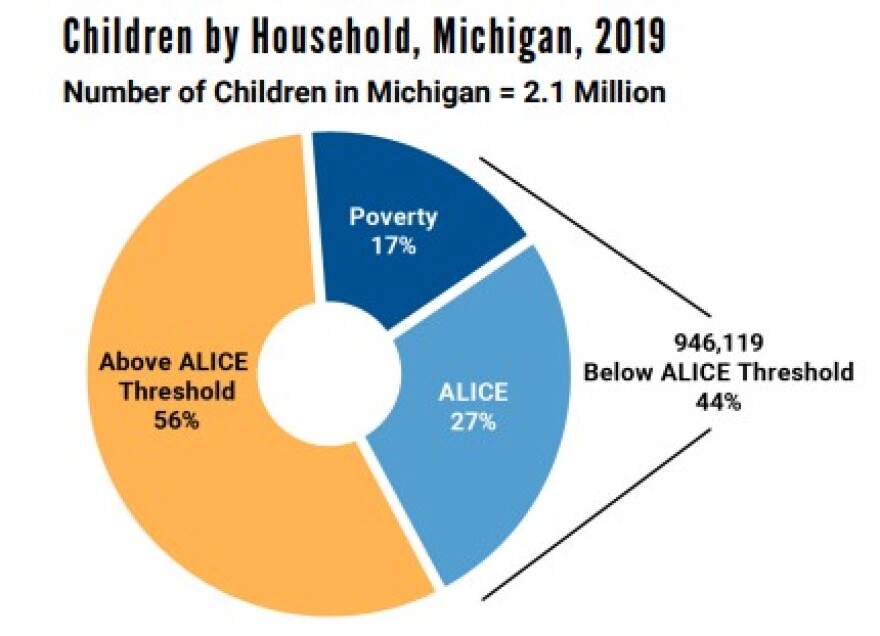44% of Michigan children live in households that struggle to meet basic needs, according to a new report from the Michigan Association of United Ways.
The ALICE report focusing on the state’s children is based on micro-level U.S. Census data from 2019. ALICE is an acronym that stands for Asset limited, Income constrained, Employed: in other words, households with income below the basic cost of living in their communities.
The report found that while only 17% of children lived below the official federal poverty level, another 27% live in working but economically precarious homes.
Michigan Association of United Ways CEO Mike Larson said there are huge racial disparities lurking behind the data.
“71% of Black children, and 58% of Hispanic children struggle to make ends meet each and every day,” compared to only 36% of white children, Larson said. “That is huge.”
There also large geographic disparities. Only 17% of children in Livingston County live below the ALICE threshold, whereas 84% of Detroit children do.
Larson said that housing costs are eating up an increasing amount of ALICE households’ budgets, leading to housing instability. And he noted that this data pre-dates the COVID-19 pandemic and rising inflation, which he said was already hitting lower-income households before the pandemic.
“It almost scares me to think what it's going to look like once we get to a point of getting through this, and are able to look at the [more recent] data,” Larson said.
While the report doesn’t go into detail on proposed policy solutions, Larson said ideas like Governor Gretchen Whitmer’s proposal to boost the Earned Income Tax Credit make common sense.
The EITC is “an incentive for working families, for them to work,” Larson said. “And it also gives them some cushion that they absolutely need right now.”
However, the report also that 41% of Michigan ALICE families still had not received the advance child tax credits in the fall of 2021, for reasons such as not having filed a tax return. For ALICE families that did receive, they were more likely to use it to pay down debt than families above the threshold, rather than save it.




